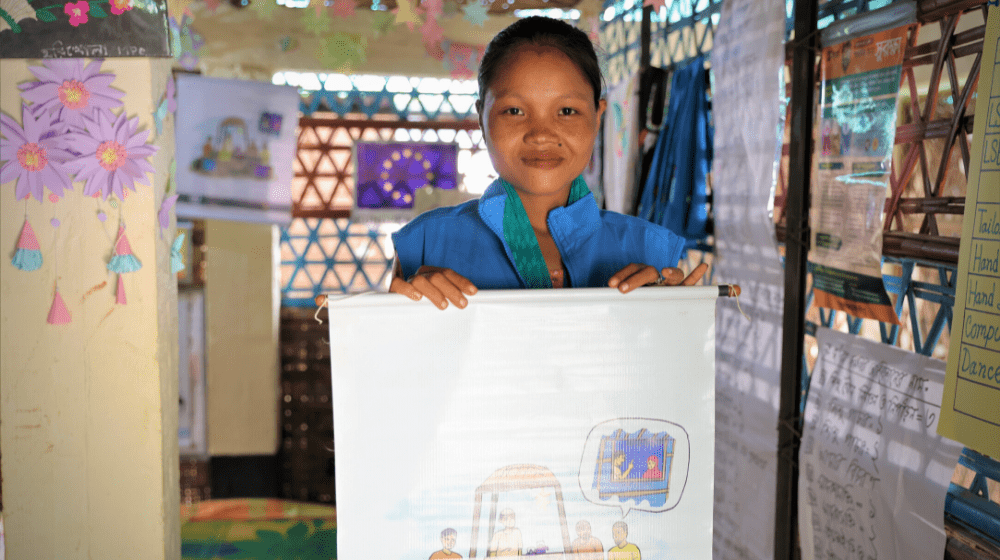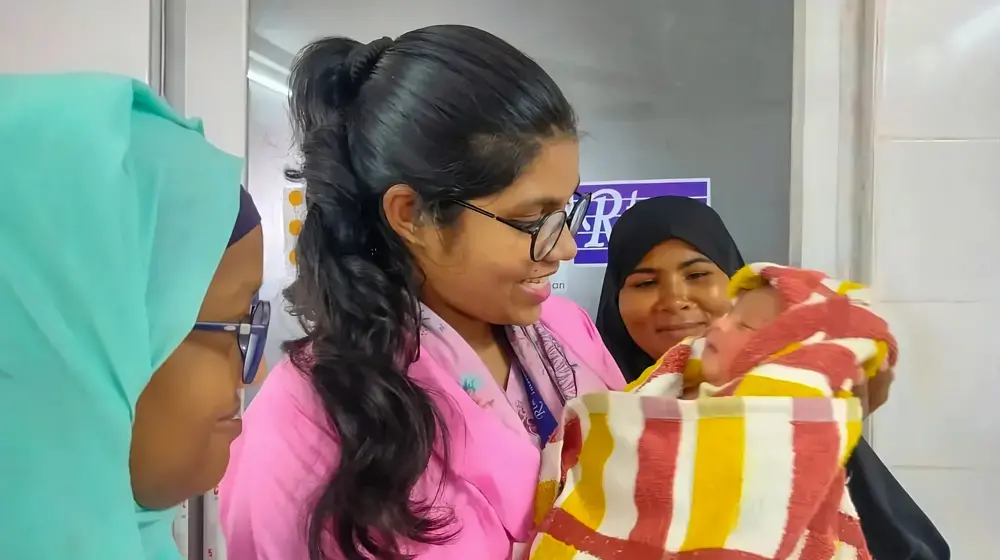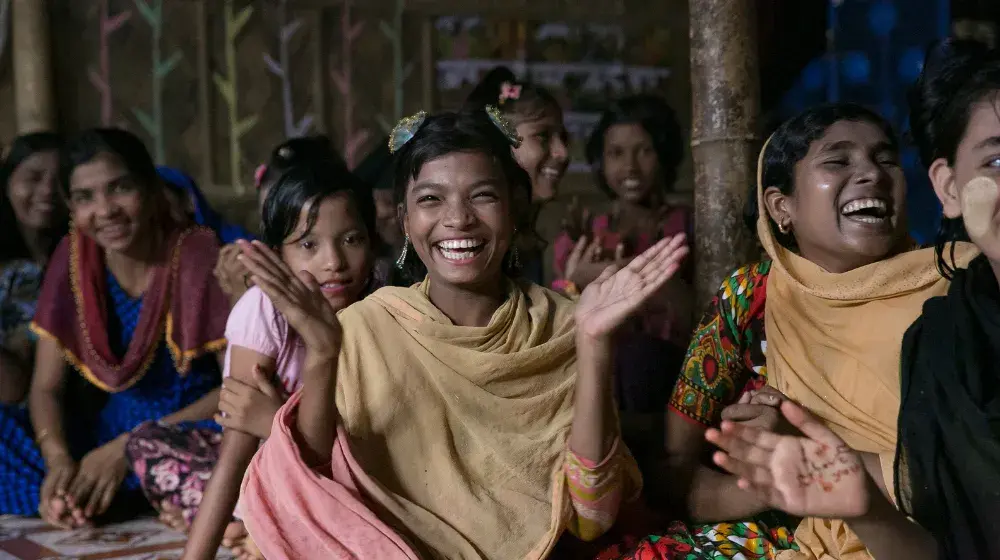"I was married at the age of 14 and I lost my first child during pregnancy," says Ranu Chakma, a community activist from the southern region of Cox's Bazar. In her remote Teknaf Upazila neighbourhood, adolescent motherhood is prevalent. Due to social taboos and socioeconomic circumstances, girls are frequently denied the right to an education and other opportunities.
"Because I come from a poor household, I was only able to attend school to the second grade, and neither did my siblings,” Ranu continues to describe her challenges as a minority in her community, a situation shared by tens of thousands of women.
Dreams for a brighter tomorrow
Back in 2021, Ranu joined the SASA! Together community activism. She is currently actively promoting awareness in her immediate family, neighbourhood, and the larger community.
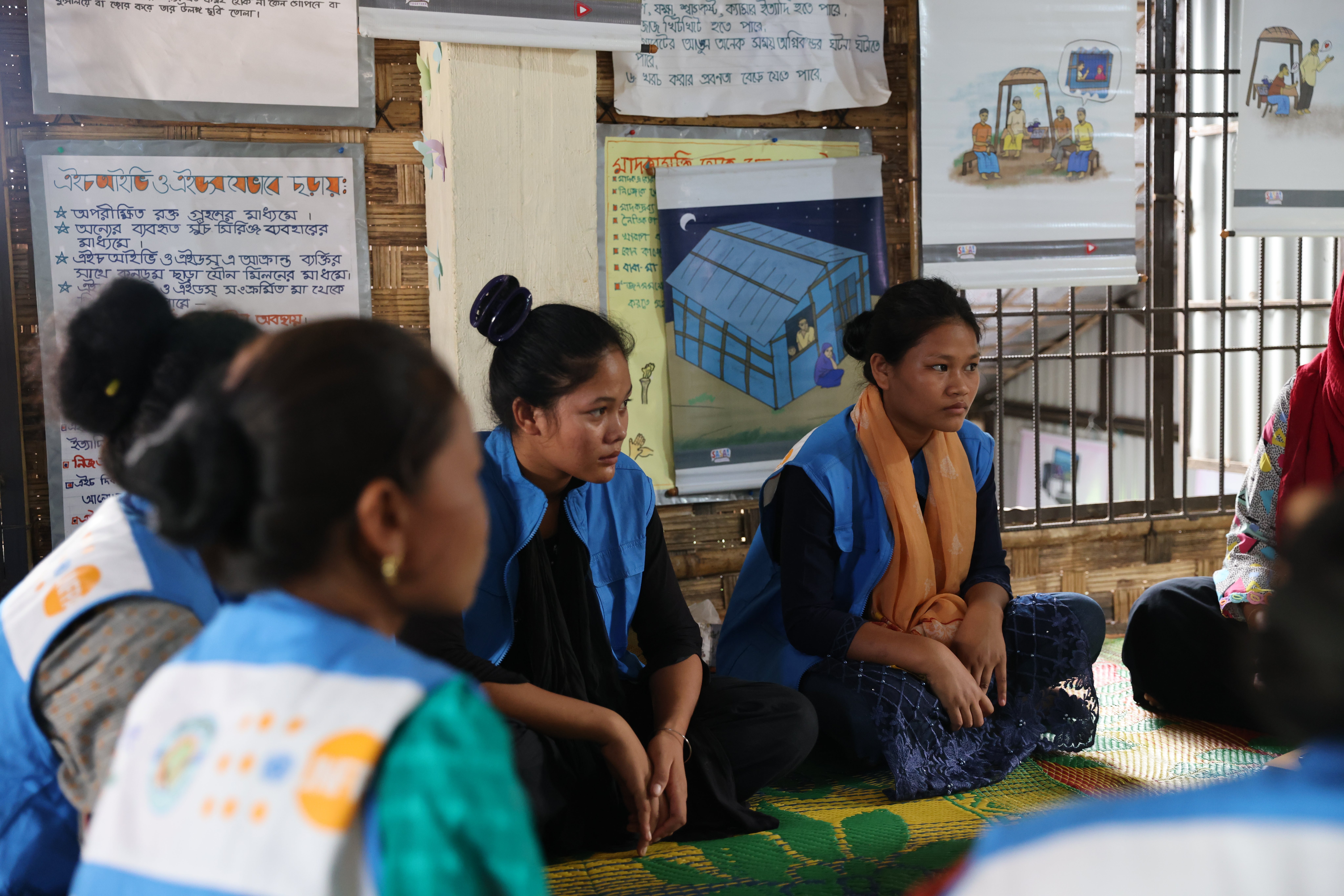
SASA!Together community activists attending a session @UNFPA Bangladesh/Farjana Sultana
UNFPA has been assisting women, men, boys, and girls through a community-based approach to preventing and mitigating Gender-Based Violence. SASA! Together is a step-by-step social mobilization technique utilized in both Rohingya and host communities to prevent gender-based violence and to stop all forms of violence against women and girls, as well as to assist male and female residents in becoming champions for their own community.
The methodology, whose acronym stands for Start, Awareness, Support, Action has been operational in Bangladesh since December 2020, mobilized over 316,096 (216,302 Female, 99,794 male) people across camps in activism campaigns, trainings, brainstorming and knowledge-sharing sessions, group works and discussions to inform, share and increase awareness on the different forms of GBV and the safety of women and girls, which translates into positive relationships nurtured by Hope, Positivity, Communication, Respect and Equity.
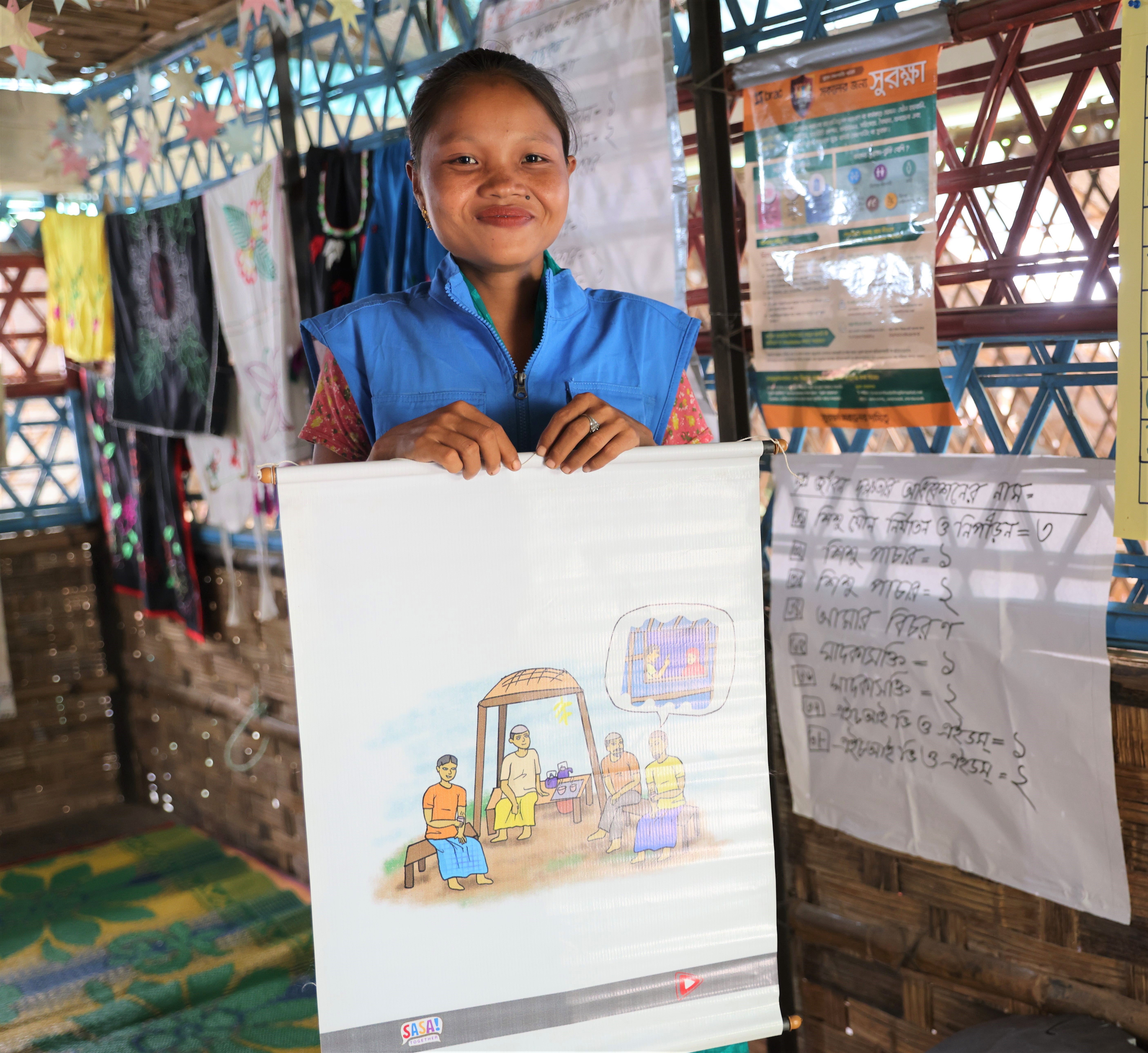
Ranu Chakma is an active community volunteer working towards preventing and mitigating Gender Based Violence. @UNFPA Bangladesh/Farjana Sultana
“As I never had any chance to get any kind of formal education, I remain quite excited about all the learnings I receive from the SASA!Together approach. I learnt about many dimensions of power and their misuse in society and how to treat them not only inside the household but also in the bigger community,” says Ranu.
She further adds "I want to pass on those skills and information to my children so they don't have to face the hardships that my generation did. I want them to grow up to be resilient, aware of their rights, and able to speak out for themselves.”
In the SASA!Together approach sessions focus on GBV Power Posters, Community Conversations, Deeper Discussions among partners, Cultural Games promoting GBV, Community Posters, Drama, Key GBV information dissemination, Social network/group cultural activities, and community-wide events/Campaign. These multiple ranges of activities helped impartial access to GBV information, services and knowledge sharing among diversified groups at different levels.
Historically, the ethnic minorities in the Cox's Bazar region are the most disadvantaged in the area, as they lack access to quality education and health care and are frequently burdened by social taboos and misconceptions regarding the rights of women and girls to education, employment, and the right to participate in decision making.
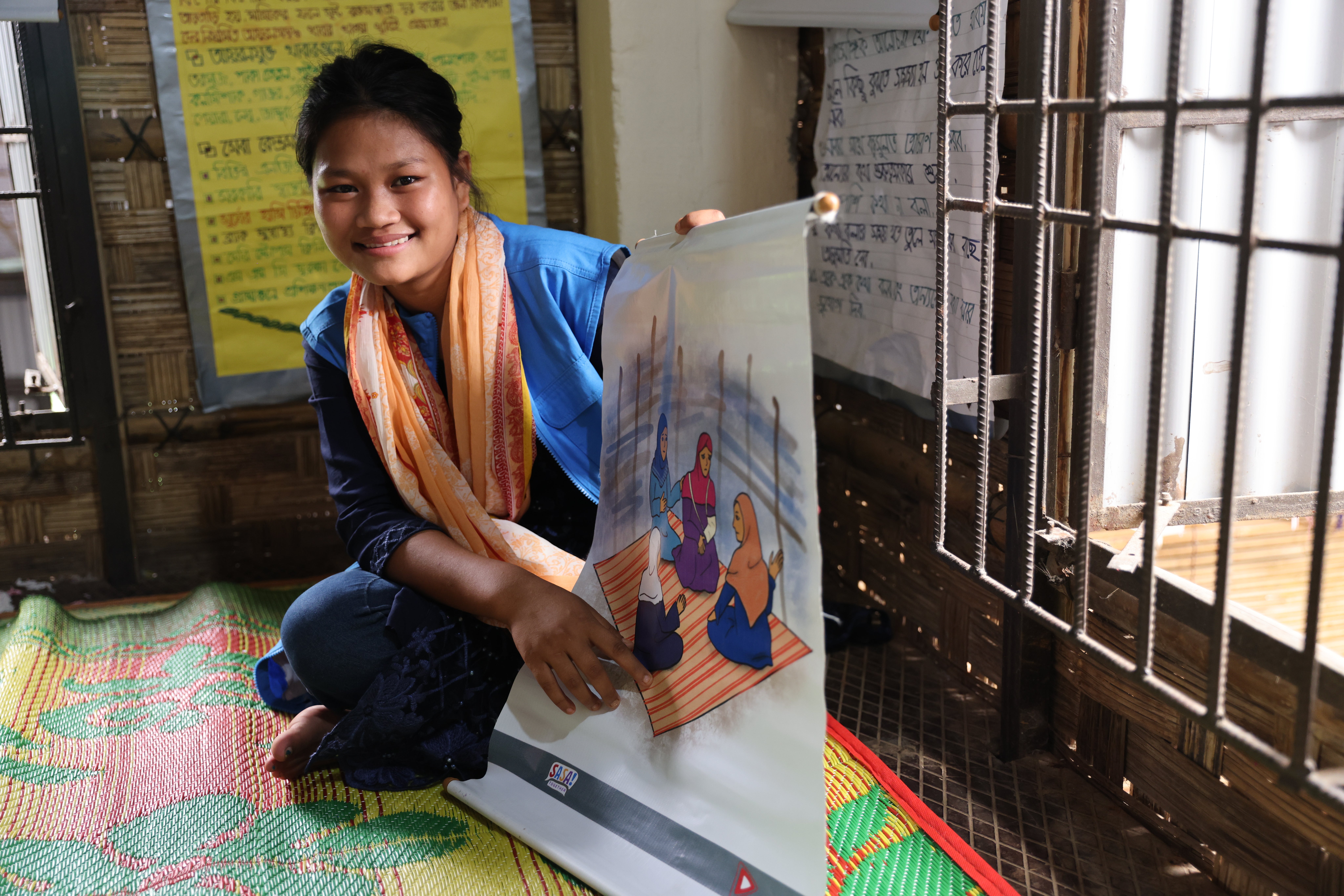
Shwapna Chakma, an adolescent SASA!Together community activist conducting a session on one of the topics @UNFPA Bangladesh/Farjana Sultana
Building an empowered generation
Shantimala and Shwapna have been community volunteers since they were 15 years old. Together with other women and girls, they attend the SASA!Together session after school to learn about various concerns.
Shwapna Chakma comments, "I enjoy attending the sessions because I am able to learn many new things that benefit me and allow me to assist other women and girls in my community."
“My parents wanted me to marry at the age of 13, but I was not ready. I urged my father to reconsider, but he refused. At that time, my friend Shantimala began attending SASA! Together meetings, and she helped me contact with the GBV community activist , who visited my home and discussed with my parents about the repercussions of child marriage. My marriage was stopped, and my father gave me permission to finish my education."
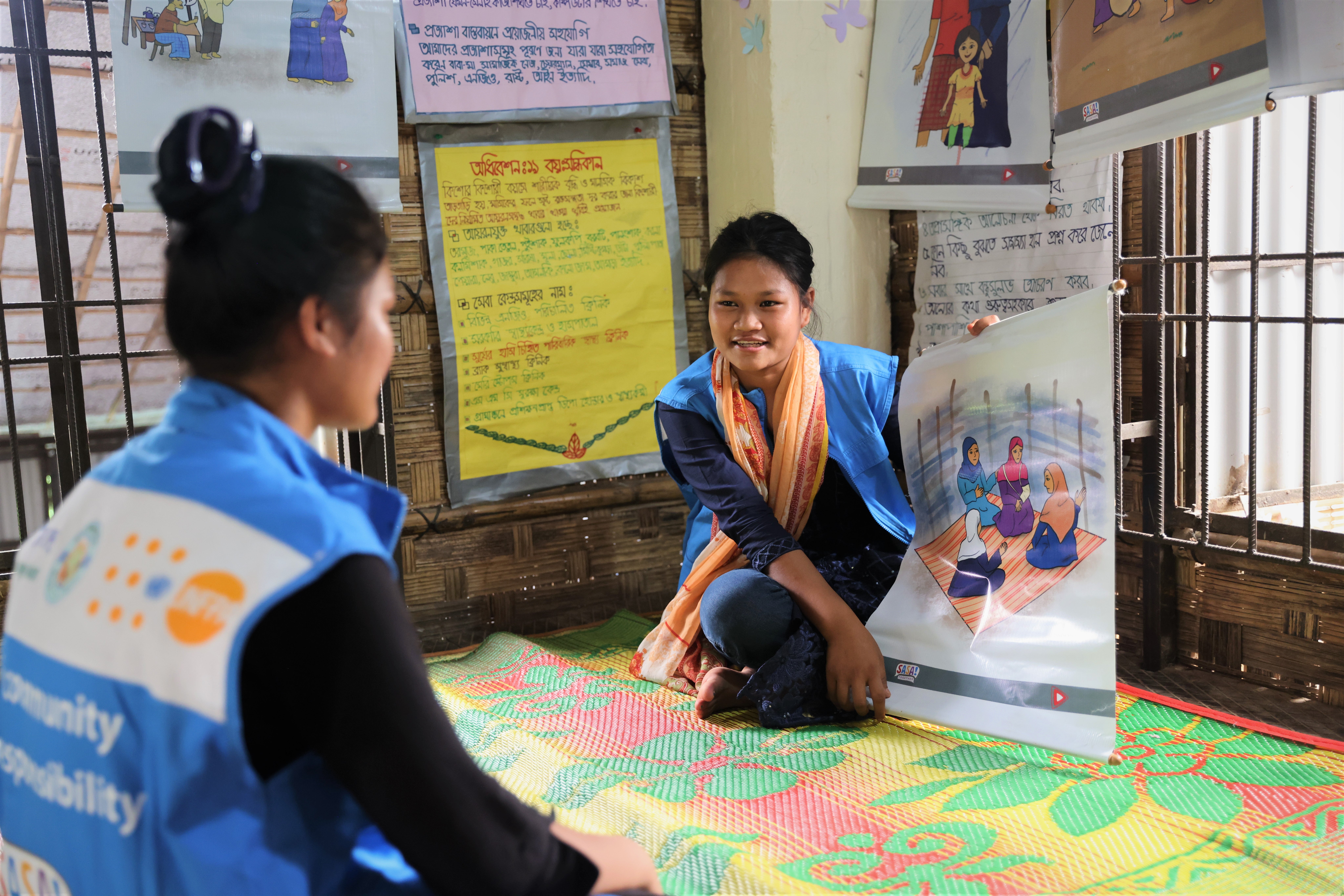
Shwapna Chakma discussing one of the topics from the SASA together with her friend Shantimala. @UNFPA Bangladesh/Farjana Sultana
“I attended the sessions on GBV community awareness and active participation alongside my friend. I impart these insights to my neighbors and fellow community members. I push for equal educational and career opportunities for adolescent girls,” Shwapna states.
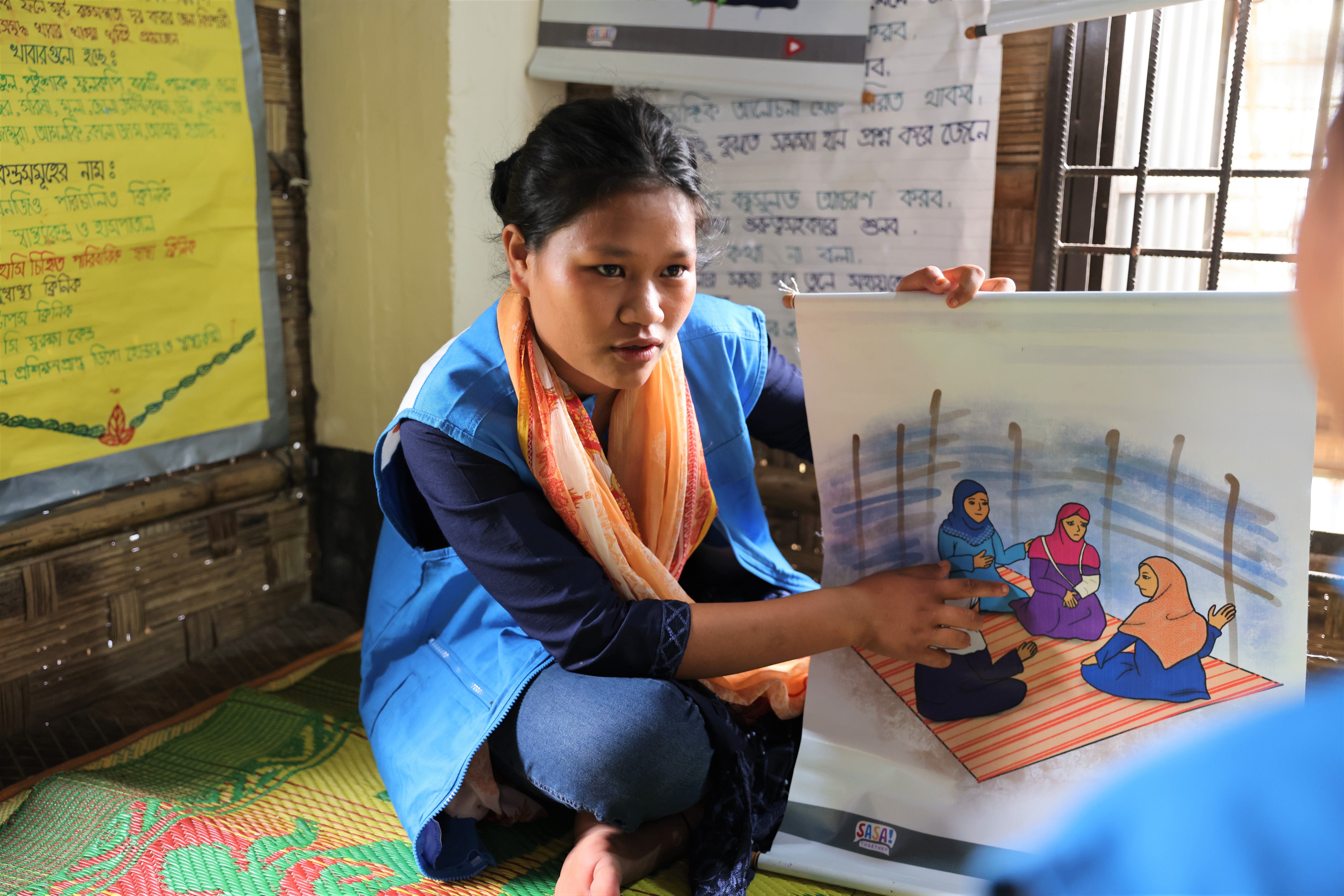
Shwapna Chakma, a female community activist discussing one of the topics from the SASA together with her friend Shantimala. @UNFPA Bangladesh/Farjana Sultana
SASA! Together makes sure that all women, girls, boys, and men are included in activities to stop gender-based violence. Since December 2020, UNFPA has been putting this innovative community-led GBV prevention strategy into action. It is a holistic community mobilization approach to preventing violence against women and girls, changing power imbalances between women and men through critical discussion and positive action.

